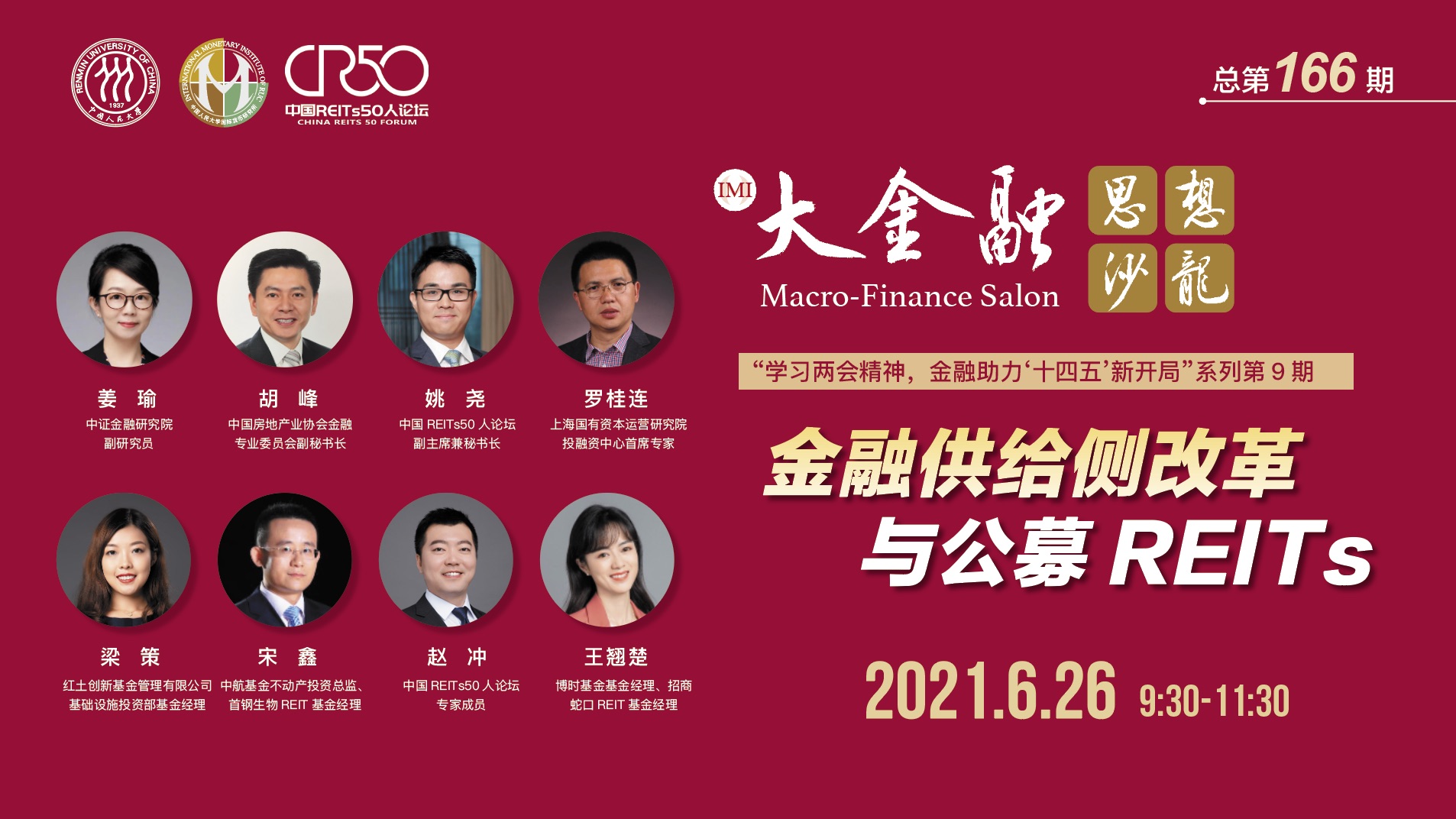Macro-Finance Salon (No. 166): Financial Supply-Side Reform and Public Offering of REITs
2021-06-26 IMI
On June 26, the Macro-Finance Salon (No. 166) was held online. This event was co-organized by the IMI and China REITs 50 Forum, and was the ninth session under the series of “Learn from the spirit of the Two Sessions--finance supports the start of the 14th Five-Year Plan”. During the event, Zhao Chong, an expert of China REITs 50 Forum delivered a keynote titled Driving the Domestic Economic Circulation with Infrastructure Public Offering of REITs. Participating in the discussion on the performance of the first batch of publicly traded REITs were Luo Guilian, Chief Expert at the Investment and Financing Center of Shanghai State-Owned Capital Operation Research Institute, Jiang Yu, Associate Research Fellow at China Institute of Finance and Capital Markets and Member of CSRC Working Group on Piloting Public Offering REITs, Hu Feng, Deputy Secretary-General at the Specialized Commission on Finance of China Real Estate Association, Song Xin, Real Estate Investment Director at AVIC Fund and Fund Manager of the Biomass REIT of Shougang Group, Wang Qiaochu, Fund Manager at Bosera Funds and Fund Manager of China Merchants Shekou REIT, Liang Ce, Fund Manager at Hotland Innovation Asset Management and Fund Manager of Yantian Port REIT. The salon was chaired by Yao Yao, Vice President and Secretary-General of China REITs 50 Forum and President of Xiamen International Financial Technology Co., Ltd.
The salon opened with the keynote of Zhao Chong. He mainly analyzed the economic demands for infrastructure development in China, the framework and breakthroughs of infrastructure public offering REITs, and some key concerns of state-owned enterprises and central government enterprises in promoting public offering REITs. Zhao said that infrastructure is the foundation and prerequisite for economic and social progress. Due to sluggish development of infrastructure in the past, many regions now face a pressing need for more infrastructure. To meet this heightened demand, they must deal with the problem of financial input. In addition, investment in infrastructure has been in low gear because of its demand of massive input, long payback period, lack of exit channels and accumulation of debt risks. Public offering REITs effectively revitalize the existing assets by capital premium conversion, bank loan conversion and state subsidy for investing in new projects, becoming an effective way to reduce debt risks and raise funds extensively. The infrastructure public offering REITs system is also improving in China. Project funding from public offering REITs can replace the capital, thereby improving financing efficiency and lowering project risks. As a result, public offering REITs should have lower financing costs in theory.
During the discussion session, participants touched upon the following issues: the performance of the first batch of publicly traded REITs from the perspective of policymakers, regulatory issues related to REITs pilot projects, challenges of infrastructure REITs in China, valuation of REITs assets and insights on the expansion of public offering REITs.
